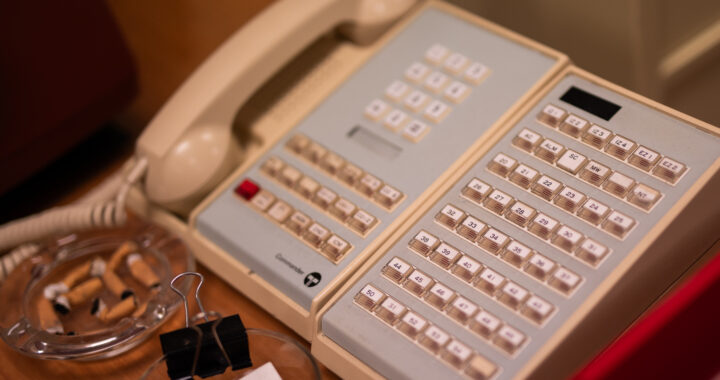When you’ve serviced business phone systems for almost 50 years, you get a sense of what businesses need, what breaks most often, and what people get wrong. You also see a lot of changes. For the most part, manufacturers keep adding new things to help businesses work more efficiently, but sometimes, people who’ve gone through a few systems have features they miss.
Users missing old features is common because we all get used to doing things a certain way and can have difficulty adjusting. But sometimes, old features really did just work very well!
Call Park vs Call Transfer vs Hold
One of the most common places we see confusion when people move from an older business phone system to a new telephone system, especially a cloud or VOIP system, is the difference between call transfer and call park.
When we were more of a telephone system engineer in the late 70s and early 80s, we had to do some work to enable systems to transfer calls easily. As major manufacturers like Toshiba caught on to the need for employees and departments to transfer calls between each other, they began to design systems to do it out of the box.
However, today, a standard telephone system feature that enables transferring calls from one user to another is call park. But unlike transfer, it’s not as simple. First, a user must place a call in a “parking place.” Then they let the person the call is intended for know where the call is parked, i.e., “Sam, call parked on 2.”
Since parking is somewhat similar to placing a call on hold, it’s led to confusion, particularly since some systems have the “executive hold” feature, which allows only the person who put the caller on hold to pick it up.
This is one feature some customers feel so strongly about that they’ve refused to give up an old system!
Physical Phones
While modern business telephone systems still utilize physical equipment, there is certainly much less of it!
In the old days, a phone system would have taken up a whole closet, every desk would have a physical phone, and we’d have to run thousands of feet of cable to connect everyone to the system.
Today, phone systems are often the size of a small computer, or they aren’t updated on-site at all due to the cloud!
Similarly, with the advent of softphones, many users don’t have a physical telephone on their desks. Instead, they have a piece of software designed to mimic the features of a desk phone installed on their computer or cell phone. Of course, many users opt for all 3.
While a business can save money without purchasing physical telephone equipment, having something in their hands is preferable for some. When you already have 40 windows open on your computer, pressing a button on your desk can be more convenient.
So simplicity may still be best. That’s why physical phones haven’t entirely fallen out of fashion.
Closed Business Phone Systems
One thing that most business owners probably didn’t appreciate until they didn’t have it anymore was the two major benefits of having a self-contained phone system – security and stability.
Phone System Stability
Whether you have a VOIP or cloud telephone system, your calls go over the internet. And that means that your stability goes up and down.
Those speeds that internet providers advertise? Typically, they’re the maximum. So speed isn’t guaranteed. That means your call quality isn’t either.
A few milliseconds may not matter when a website loads, but your phone call gets garbled when audio packets arrive at different times.
Business Telephone System Security
Internet connection has another potentially more serious consequence for your business – security holes. Tapping a call used to mean placing a physical device on the phone or the phone line. Now, you only need a talented hacker who can use the internet.
Of course, modern business telephone systems come with security protocols built in. You can also add additional security like firewalls and more. Large corporations spend a significant portion of their budget keeping their phone secure.
However, for some, the risk is simply not worth it, and sticking with older telephone system technology is the only acceptable solution.
We Still Service Toshiba Business Phone Systems
For those businesses who haven’t turned to modern technology either because of security and stability concerns, loss of features, or budget, we have good news! RCI still services the Toshiba telephone systems we sold, installed, and serviced for over 3 decades.
We still have a sizable stock of old Toshiba parts that we configure to create rental systems for customers who still want them.
Whether you want a new modern telephone system or an older business phone system that works the way you remember, RCI is here to serve all of your business communication and IT needs!

